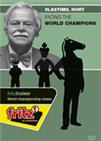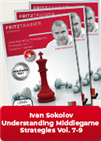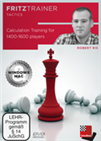Happy birthday to a legend of the game!
Today, legendary Grandmaster Vlastimil Hort celebrates his 80th birthday. A long stay of several weeks in hospital when he was five years old and a caring doctor who played correspondence chess and explained the chess rules to him were the beginning of his great passion. Afterwards, his mother took him to a chess club — which was not easy in 1950. Today, Hort can look back on a turbulent and successful chess career and life.
Let him be honoured with curious facts and anecdotes. Of course, you can find links to memories and stories from the maestro himself.

Vlastimil Hort, during an exhibition Rapid Fischer Random (recently called Freestyle) side event at the Biel Chess Festival in 2018 | Photo: Biel Chess Festival
Vlastimil Hort, born 12 January 1944 in Kladno (the city is part of the Prague metropolitan area), is a Czech-born German chess grandmaster. After studying economics, he decided to pursue a professional chess career in 1968, the year of the Soviet invasion of Czechoslovakia. He moved to West Germany around 1979 and formally emigrated in 1985.
Hort won the Czechoslovakian Chess Championships six times and was the German chess champion three times. During his career, he has won more than 80 major international tournaments.
Throughout the 1960s, 1970s and 1980s, Hort was one of the world’s strongest and busiest players. He is also an excellent blindfold player, a profilic author and a popular chess commentator.
Vlastimil Hort qualified as a Candidate in 1977. In the quarter-finals, he faced Boris Spassky, a match he lost in extremis after double extra-time.
First and foremost, though, Vlastimil Hort is a fantastic storyteller! He regularly shares his stories on ChessBase, and recently published a book with personal memories of his life and long chess career.
Olympic debut at the age of 16 in Leipzig 1960
 During his career, Vlastimil Hort, who himself belongs to the same generation as Bobby Fischer, met no less than eight world champions over the board. In the early 60s he crossed swords with Mihail Tal, and at the end of the eighties he was sitting over the board from Garry Kasparov. Between the two there were meetings with chess legends Botvinnik, Petrosian, Smyslov, Spassky, Fischer and Karpov.
During his career, Vlastimil Hort, who himself belongs to the same generation as Bobby Fischer, met no less than eight world champions over the board. In the early 60s he crossed swords with Mihail Tal, and at the end of the eighties he was sitting over the board from Garry Kasparov. Between the two there were meetings with chess legends Botvinnik, Petrosian, Smyslov, Spassky, Fischer and Karpov.
Hort, a rising star at the time, at his first Olympiad — Leipzig 1960 | Photo: Tournament book
Vlastimil Hort made his debut in the Chess Olympiads at the age of 16 and a couple of months in 1960 on board four for Czechoslovakia (with Ludek Pachman on board one, Miroslav Filip on board two and IM Jiri Fichtl on board three).
In total, he made 14 appearances at the Chess Olympiad between 1960 and 1992 (including three editions for Germany), mostly playing on board one. In Lucerne 1982, Czechoslovakia won the team silver medal (with Vlastimil Hort on board one, Jan Smejkal, Lubomir Ftachnik, Vlastimil Jansa, Jan Plachetka, and IM Jan Ambroz).
Vlastimil Hort earned an individual silver medal on top board at the Olympiad in Skopje in 1972, where he was also awarded the best game prize for his win in the A-Final group of the best 16 teams against then reigning Junior World Champion Werner Hug. As usual, IM Hug from Switzerland played rather passively even with white (some would say, Hug is known for an ultra-defensive style, aiming for a draw with a bunker mentality).
Well, the game is finely balanced, the material is even, but after Hort’s brilliant bishop sac with 24... Bxh4, removing the pawn guard at g3, almost nothing can be done for White to stop the mating threat(s). All of a sudden, within just three moves, everything leads to disaster, and White resigned after move 27.
Best game prize - Skopje Chess Olympiad (1972)
The match of the century in Belgrade 1970
Vlastimil Hort beat individually his higher-rated opponent Lev Polugaevsky by 2½-1½ on board four at the USSR vs. Rest of the World match, held in March and April 1970 in Belgrade, then Yugoslavia. Bozidar Kazic was the arbiter. The ten best players from the Soviet Union faced the best players from the World on ten boards, with ten mini-matches of four games each. The USSR team won narrowly by a 20½-19½ score.
The lineups
USSR
1.Boris Spassky 2.Tigran Petrosian 3.Viktor Korchnoi 4.Lev Polugaevsky 5.Efim Geller 6.Vasily Smyslov 7.Mark Taimanov 8.Mikhail Botvinnik 9.Mikail Tal 10. Paul Keres
Reserves: Leonid Stein and David Bronstein (no games)
Rest of the World
1.Bent Larsen 2.Bobby Fischer 3.Lajos Portisch 4.Vlastimil Hort 5.Svetozar Gligoric 6.Samuel Reshevsky 7.Wolfgang Uhlmann 8.Milan Matulovic 9.Miguel Najdorf 10. Borislav Ivkov
Reserves: Fridrik Olafsson and Klaus Darga (no games)
At the age of 26, Hort was the youngest starter of all the nominated players! The second-youngest player was Bobby Fischer (born 1943). The oldest player was Miguel Najdorf who drew Mikhail Tal (+1=2-1) — Don Miguel was born in April 1910 and celebrated his 60th birthday a few days after the famous match had finished. Botvinnik, Reshevsky (both born 1911), and Keres (born 1916) were also older than fifty years.
Five from the 24 players are alive, namely Boris Spassky, Lajos Portisch, Vlastimil Hort, Fridrik Olafsson, and Klaus Darga, who will turn 80 next month too.
Hort’s decisive win in the first round - Belgrade (1970)
Former World Champion Max Euwe acted as team captain of the World. Initially Reshevsky and Najdorf battled for the spot on board four, but then Bobby Fischer’s voice prevailed.
The Match of the Century: V. Hort with impressions from Belgrade | Chessbase
Shortly after the USSR vs. Rest of the World match in Belgrade, a strong “Tournament of Peace” was held in April 1970, organised in two other cities in Yugoslavia. Eight top players from the match in Belgrade made the trip to Rovinj and Zagreb: Fischer, Gligoric, Hort, Ivkov, Korchnoi, Petrosian, Smyslov, and Uhlmann. They were joined by Browne, Kurajica and Udovcic, and some lesser known players, mostly from the hosting nation.
Hort was the only contestant in the 18-player field to remain unbeaten, and finished shared second behind Bobby Fischer, who won in great style with two full points ahead of the rest, despite a surprising loss to Vlado Kovacevic. Hort at that point definitely belonged to the absolute world elite.
In the FIDE yearly Elo rating list from 1970, he was ranked as sole no. 12. During the whole 1970s, Hort was always in the top-20, peaking at no. 6= and no. 7= in 1977 and 1978. During the whole 1980s (half-year lists), Hort belonged to the top-50 in the world, although mostly among the top-20.
Major tournament wins
 Let Toptrainer Sokolov show you the ins and outs of middlegames. This course is about the catalan structures vs. semi-slav/triangle setups
Let Toptrainer Sokolov show you the ins and outs of middlegames. This course is about the catalan structures vs. semi-slav/triangle setups‘Vlasti’ won near all recurring individual Chess Classics during the sixties, seventies and eighties. Hort clinched his first big international cap at Marianske Lazne in 1965, where he won together with Keres, ahead of Shamkovich, Uhlmann, Pachman, Stahlberg, Filip, Fuchs, and among others Kavalek, Jansa, Robatsch, Pomar and Pirc. That year, Hort was awarded the grandmaster title by FIDE — there were still less than a hundred GMs on Earth!

Paul Keres and Vlastimil Hort in Tallinn, 1975 | Photo: Dmitri Prants (Estonian Olympic Sports Museum)
His finest tournament victories include three triumphs at Hastings (1967/68 shared, 1974/75 as sole first, and 1975/76 together with Bronstein and Uhlmann, ahead of Korchnoi, followed by Taimanov, Sigurjonsson, Sosonko, as well as a bunch of young Brits — looking to get a GM norm — including Miles, Stean, Keene, and Nunn), winning outright at Venice (1969), Skopje (1969), Gloggnitz (Schlechter Memorial 1971), Gothenburg (1971 with Andersson, ahead of reigning World Champion Spassky, who finished sole third), the famous Capablanca Memorial in Havana (1971 alongside Geller), Reykjavík (1972 together with Gheorghiu and Fridrik Olafsson — Reykjavík then was a biannual closed invitation tournament, while today is played as an annual open), Vinkovci (1976, shared), Banja Luka (1976), Polanica-Zdrój (Rubinstein Memorial 1977), Sarajevo (Bosna 1980), finishing undefeated at +5 as first on tie-break, tied with Sax at the distinguished and strong IBM-Amsterdam tournament (1979). Hort won twice at the Biel GMT (1981 with Lobron, and 1984 with Hübner), and twice at Dortmund (1982 clear first, and 1985 shared).

Vlastimil Hort in Wijk aan Zee on 23 January 1973 | Photo: Bert Verhoeff, Anefo
At Wijk aan Zee, Vlastimil Hort finished four times as the runner-up! Twice as clear second, twice as shared second; making it six podium finishes out of ten entries at Wijk aan Zee (Hoogovens) between 1968 and 1986.
In the edition of 1975, Vlastimil Hort surpassed the two Soviet players, Geller and Furman, as well as Timman, Hübner, Gligoric, Browne, Smejkal, Kavalek, and Donner, only half a point behind winner Lajos Portisch.
Vlastimil’s brilliant win over Walter Browne - Wijk aan Zee (1975)
Vlastimil Hort also won some of the most prestigious opens of his time. He is one of the very few non-US players who won the U.S. Open Chess Championship, as he claimed victory in New York City in 1974 together with Benko. He also won the prestigious Lone Pine Open in 1979 alongside Gheorghiu, Liberzon, and Gligoric. Hort also took the first OHRA Open at Amsterdam in 1982 with Short, and outright again in 1987, and the inaugural edition of the American Summer at Berlin (a large open, later called Berliner Summer) in 1983, beating Ludek Pachman in the last round and achieving 8½/9 points to get clear first among the 270 participants!
His record in national competitions is impressive too. Hort was a six times champion of Czechoslovakia between 1969 and 1977. After switching to the German Federation during the mid-eighties, he became a twice champion of the FRG (Federal Republic of Germany) in 1987 and in 1989, and Hort won the first championship of the reunified Germany in 1991. He was Czechoslovak Junior Champion in 1960 and 1962. Hort is still occasionally active, playing in German and Czech senior and team events.
Hort has participated in tournaments almost all over the world and faced virtually all of the modern greats in classical games, from Botvinnik and Fischer to Kasparov and Anand. Hort has beaten Smyslov, Spassky, Karpov, Korchnoi, Larsen and Portisch, among many others

A cartoon of Vlastimil Hort by Ottokar Masek
A true gentleman during the Candidates match in Reykjavik 1977
In 1977, Hort played in the Candidates’ quarter-finals against Boris Spassky. The match lasted nearly two months, from 27 February to 19 April 1977.
The quarter-finals were played to the best of 12 games, and the first to reach 6½ points would be the winner. If there was no winner, two more games would be played. If still no winner was found, another two games followed, etc. — always in standard time controls!
The score was even when Spassky got hospitalized with appendicitis after game 12. FIDE President Max Euwe confirmed that, according to the rules, if Spassky couldn’t show up in time for the next game, Hort would win the match by forfeit.
At this point, Hort did what was later called “one of the most sportsmanlike acts in chess history” — he requested a match postponement. When about ten days later, the match resumed for the play-off, in game 15, Hort reached a crushing position, but forgot about the clock and lost on time in a completely winning position (note: game 15 was the first game of the second overtime, the following and last game was drawn). Spassky won the match in extremis after double extra-time.
The crucial game — a loss on time in a winning position

Facing Boris Spassky (left) at the Candidates’ quarter-final in Reykjavik in 1977 | Photo: Skaksamband Islands
Overview: After an excellent result at the Interzonal in Manila in 1976, where Hort was runner-up together with Polugaevsky, behind the winner Henrique Mecking from Brazil, he became a Candidate.
Eight players made it to the Candidates in 1977, then organised as a three-year cycle, and held in a knockout format with matches in quarter-finals, semi-finals, and a final to determine the challenger of the reigning champion. The pairings were Korchnoi vs. Petrosian, Polugaevsky vs. Mecking, Portisch vs. Larsen, and Spassky vs. Hort (above). Spassky beat Portisch in the semi-finals and advanced to the final, which he lost to Korchnoi, who had eliminated Polugaevsky and Petrosian.
Hort had already come extremely close to becoming a Candidate at the strong Interzonal in Sousse, Tunisia in 1967, which was won by Larsen (remember, leading Fischer quit), only edged out in a subsequent triangular play-off — for one spot — with Stein and Reshevsky. After twelve rounds, all three players were equal again! According to the rules, the player with the highest Sonneborn-Berger tie-break score from the Interzonal got the spot in the Candidatess, and Reshevsky was that lucky one.
Simultaneous engineering
 Mastering these tactical motifs is essential to deepen your understanding of the game and become a better player. After all, you neither want to overlook the given chances by your opponent, nor blunder yourself!
Mastering these tactical motifs is essential to deepen your understanding of the game and become a better player. After all, you neither want to overlook the given chances by your opponent, nor blunder yourself!In April 1977, Hort put on one of the most amazing exhibitions of simultaneous chess ever performed. Just after his exhausting Candidates’ match against Boris Spassky, to console himself a little, Hort broke the world simultaneous record by playing against 550 opponents (+477 =63 –10) in Iceland.
Later, in the mid-1980s, Hort played 663 (other sources say 636) games in a simultaneous exhibition at Porz, West Germany. Hort has been a long-time and highly popular player for Köln-Porz in the German Bundesliga. He also frequently played in team competitions in Switzerland and the Czech Republic.

That’s real simultaneous engineering: playing chess and drinking a bottle of beer (no advertising, please!) | Photo: Knut Meyer, Simul in 1984, Fürther Grundig-Kantine
A brilliant entertainer
Starting in the pre-Internet days, Vlastimil Hort was a longtime anchorman on television. In recent years, he has worked as a splendid commentator for ChessBase and has become a renowned author.
For 22 years, he hosted a popular chess show on German television together with fellow GM Helmut Pfleger, who turned eighty last year. Hort’s humorous contributions are still very well remembered by chess aficionados.
In his book My Chess Stories, launched together with his wife, Vlastimil Hort shares his memories of past and present masters, talks about his personal experiences and encounters in the chess world. The book was first published in German, shortly afterwards in English and other languages.
With his unmistakable Bohemian talent for storytelling, he gives a lively insight behind the scenes of the chess world in 64 stories — sometimes with investigation, sometimes with nostalgia, but always entertainingly and to the point.
Vlastimil Hort publishes My Chess Stories | ChessBase


The Good Soldier Švejk can read between the lines — Vlastimil Hort pictured on 9 August 2012 in Geneva | Photo: Frits Agterdenbos from a team match of legends
"If Vlastimil Hort did not exist, one would have to invent him". (André Schulz)
Vlastimil Hort turns 75 — an interview | ChessBase
Happy Birthday, Health and Happiness to Grandmaster Vlastimil Hort. The chess community is hoping to hear and read more from your stories and memories! We are looking forward to your next book of anecdotes. A book with his best games (Meine unvergessenen Partien, Nava Verlag) is announced for this spring!

Links
























